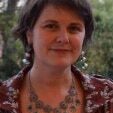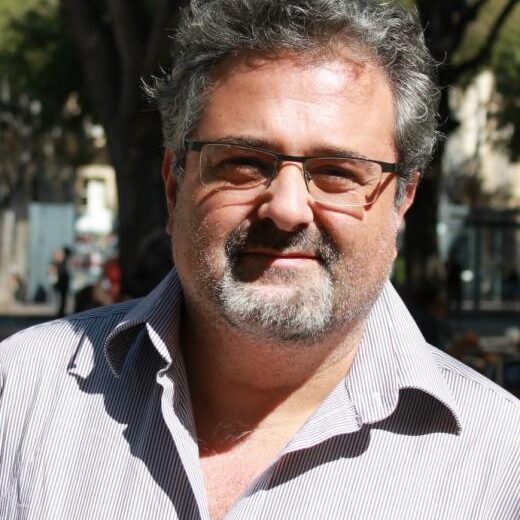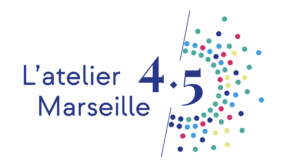Urban studies" cross-cutting theme
Spatialised social groups, local institutions and urban policies

Coordinated by
The aim of the 'Urban Studies' cross-disciplinary theme is to bring together MESOPOLHIS researchers who, either centrally or incidentally, are developing research on the city or on urban subjects. The multidisciplinary identity of the laboratory (which brings together sociologists, political scientists, historians, urban planners, geographers and demographers), the roots of different traditions of local and political studies (among political scientists, the localised analysis of politics; among sociologists, the analysis of urban social dynamics, and the heritage of a collective workshop in Marseille), have led us to propose this space where disciplinary approaches to the city and the question of power can be brought together.

The core of the analysis in this area, and what makes it original among national research laboratories working on urban issues, is that it combines three approaches to analysing the question of power in the city, within the city and over the city:
- The analysis of social groups, their distribution and spatial anchorage, their alliances, rubbing shoulders and rivalries in the urban space;
- Analysis of political, partisan or institutional battles to govern the city: players, issues, sites and objects
- Analysis of the policies implemented in urban areas by public institutions at different scales: their genealogy, instruments and spatial effects.
These approaches are often disjointed, or associated only in pairs, because of their dominant disciplinary roots (sociology, geography and urban anthropology for the first, political science for the second, urban planning for the third). A fruitful dialogue within the laboratory, at the University of Aix Marseille and beyond, has begun to take shape through various initiatives that take the city as the object of research, sometimes supported by educational projects, and attempt to hold these three dimensions together.
This transverse axis is mainly based on the axes 4 "Socio-spatial dynamics and political mobilisation" and 6 "Norms, deviances, knowledge of government". of the laboratory. It is structured around a number of initiatives of varying nature and duration, and is open to proposals from colleagues who wish to take part.
1 - "Governing the City" Reading Workshop
The "Governing the City" Reading Workshop offers regular, in-depth group readings of a range of texts on themes chosen each year.
2025-2026. Institutional activism and the making of the city
See presentation of the theme and programme of sessions
Coordination : Claire Bénit and Alice Daquin
2021-2022. Who governs the city? Community power studies in the United States and elsewhere
See presentation of the theme and session reports
2 - Urban Workshops
The Ateliers Urbains organise joint field research on a chosen area and theme for a period of three years, in interaction with local stakeholders. As applied educational and research initiatives, they involve students from a range of disciplines and various forms of public debate.
2022-2026. A first edition of these urban workshops was organised under the name "Marseille 4-5 Workshopin the 4e and 5e Marseille's arrondissements, in dialogue with the local town hall, on the theme of "Building local public action in an urban environment". After three years in the field (2023-2025), we are devoting this year (2026) to the scientific consolidation of survey results.
Coordination 2025-2026 : Claire Bénit, Cesare Mattina and Mathilde Jourdam Boutin
3 - The permanent "Marseillologie" seminar
The permanent Marseillologie seminar provides a forum for reflection, exchange and sharing of current and future social science work on Marseilles and its metropolitan area. The aim is to consolidate a group of researchers (and young researchers) whose multidisciplinary research, rooted in the Marseilles area, questions the specificity and banality of this city. This will be done by organising themed study days, focusing on putting Marseilles' urban areas into perspective and comparing them with other urban areas in France and abroad.
See the 2025-2026 seminar programme
2025-2026 coordination: Dennis Rodgers and Mathilde Jourdam-Boutin, with Claire Bénit, Cesare Mattina and Ariane Richard-Bossez
The coordinators of the Urban Studies "Governing the city" theme


Claire Bénit is a geographer and urban planner at MESOPOLHIS (AMU-CNRS-Sciences Po Aix) and Aix-Marseille University.
She is interested in institutional activism and urban change, drawing inspiration from (North American) work on urban politics, the (North American and Brazilian) political sociology of institutional activism, and (French and European) work on municipalism. She has worked on the government of informal trade, and then of parks and gardens, in Johannesburg, and has recently turned her attention to the government of urban parks and public spaces in Marseille.
Cesare Mattina is a sociologist at MESOPOLHIS (AMU-CNRS-Sciences Po Aix) and Aix-Marseille University.
His research focuses on city government. He works both on large cities, based on his research into the influence of clientelist phenomena on the hierarchisation of social groups (Marseille), and on smaller towns and cities with low population density and an industrial presence (heavy chemicals and civil nuclear power in France and Italy).
